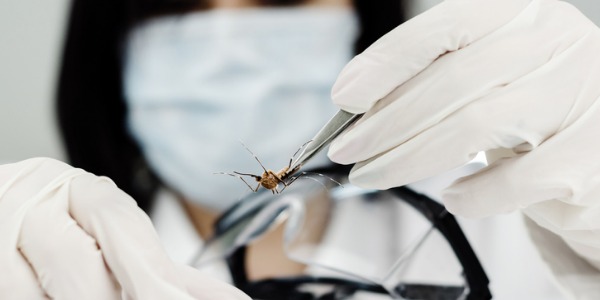What is an Entomologist?
An entomologist is someone who specifically focuses on the scientific study of insects, with most entomologists focusing on a specific type of insect. For instance, an entomologist who focuses on bees is called an apiologist, one who studies beetles is called a coleopterist and one who studies butterflies is known as a lepidopterist.
Careers in this field can range from agricultural entomology to forensic entomology. They may also study the insect's nutrition, ecology, morphology or behaviour. The career possibilities of an entomologist are endless.
What does an Entomologist do?

Entomologists study insects and their relationship to humans, other organisms, and the environment. The study of insects creates the building blocks for developments in chemical and biological pest control, food production, biological diversity, and a variety of other fields in science. They may specialize in agriculture, ecology, physiology, or insecticide toxicology.
An entomologist studies the classification, life cycle, and habits of insects. They will often work with other scientists on joint projects such as creating pest resistant crops. They could also work with parasitologists or other microbiologists to develop new vaccines and medicines that combat insects that spread diseases. They investigate ways to control insect pests, parasites, predators, and pollinators.
Many entomologists specialize in one kind of insect such as:
- Coleopterology -the study of beetles
- Dipterology -the study of flies
- Hemipterology - the study of true bugs
- Lepidopterology -the study of moths and butterflies
- Melittology (or Apiology) -the study of bees
- Myrmecology -the study of ants
- Orthopterology -the study of grasshoppers, crickets, etc.
- Vespology -the study of wasps
Entomologists work for governments, post-secondary institutions, and museums. Chemical manufacturing and pharmaceutical companies also hire entomologists to conduct research and present new products for professionals in forestry, agriculture, and medical communities. They may also work for independent companies to advise clients in insect control.
Duties of an entomologist may include:
- Developing methods for preventing the importation and spread of destructive insects
- Discovering and cataloging new species of insects
- Investigating the role of insect pests in agriculture, forests, human health, and the environment
- Preparing publications that help identify different insect species
- Studying the evolution of insects and classifying them
- Conducting research about the control and impact of pest problems
- Developing and implementing pest management programs for both urban and agricultural locations
- Developing methods of controlling harmful insects
- Coordinating public awareness and education programs
- Conducting field and lab tests of pesticides to understand their effect on different insect species
- Curating museum insect collections
What is the workplace of an Entomologist like?
An entomologist typically works a standard 40-hour week, especially when working in research. They work both indoors conducting lab experiments and outdoors collecting specimens in the field. Field work can be strenuous and might require relocating to remote locations for extended periods of time. When working with poisonous or allergenic insects and chemicals, entomologists are required to take safety precautions.
Entomologists are also known as:
Insect Biologist
Insect Scientist